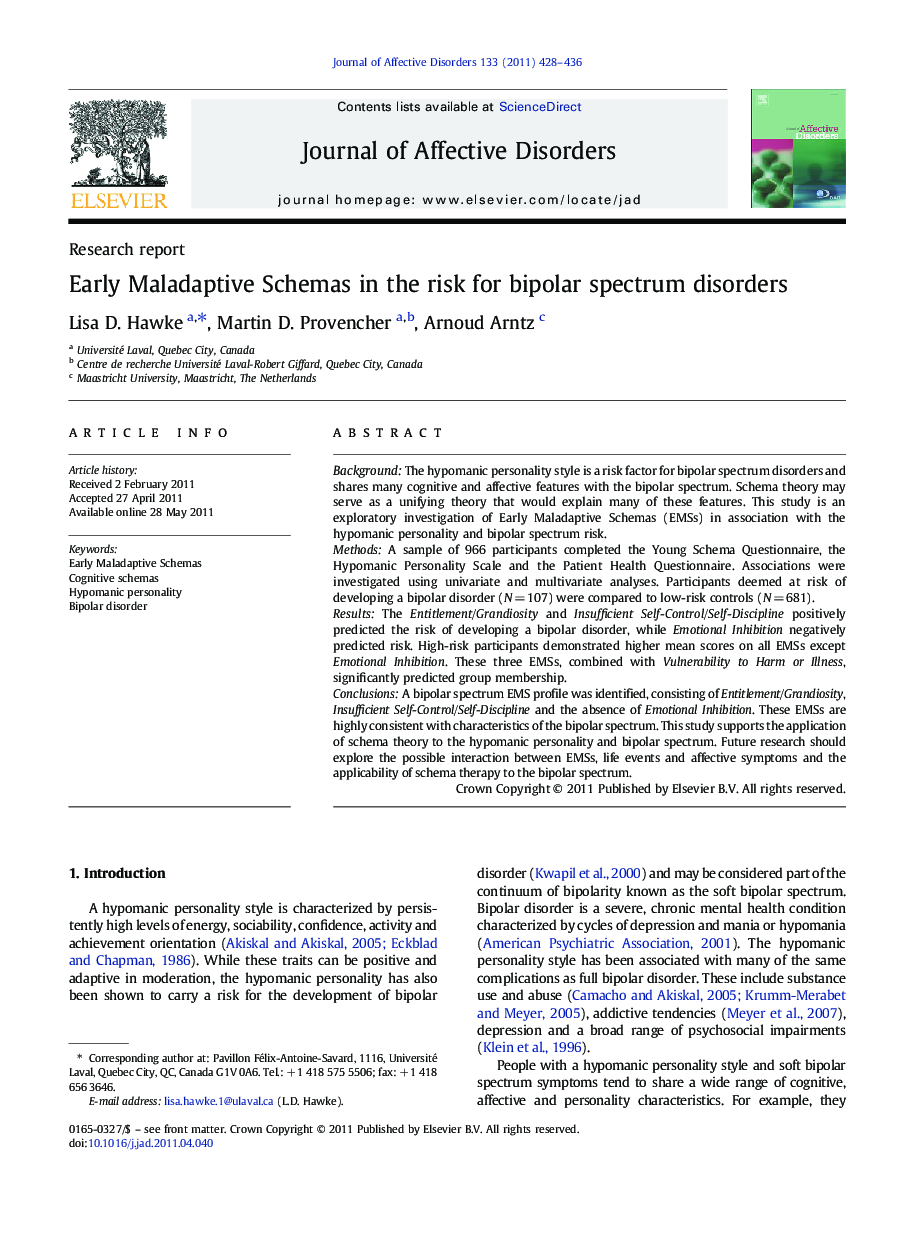| Article ID | Journal | Published Year | Pages | File Type |
|---|---|---|---|---|
| 4186390 | Journal of Affective Disorders | 2011 | 9 Pages |
BackgroundThe hypomanic personality style is a risk factor for bipolar spectrum disorders and shares many cognitive and affective features with the bipolar spectrum. Schema theory may serve as a unifying theory that would explain many of these features. This study is an exploratory investigation of Early Maladaptive Schemas (EMSs) in association with the hypomanic personality and bipolar spectrum risk.MethodsA sample of 966 participants completed the Young Schema Questionnaire, the Hypomanic Personality Scale and the Patient Health Questionnaire. Associations were investigated using univariate and multivariate analyses. Participants deemed at risk of developing a bipolar disorder (N = 107) were compared to low-risk controls (N = 681).ResultsThe Entitlement/Grandiosity and Insufficient Self-Control/Self-Discipline positively predicted the risk of developing a bipolar disorder, while Emotional Inhibition negatively predicted risk. High-risk participants demonstrated higher mean scores on all EMSs except Emotional Inhibition. These three EMSs, combined with Vulnerability to Harm or Illness, significantly predicted group membership.ConclusionsA bipolar spectrum EMS profile was identified, consisting of Entitlement/Grandiosity, Insufficient Self-Control/Self-Discipline and the absence of Emotional Inhibition. These EMSs are highly consistent with characteristics of the bipolar spectrum. This study supports the application of schema theory to the hypomanic personality and bipolar spectrum. Future research should explore the possible interaction between EMSs, life events and affective symptoms and the applicability of schema therapy to the bipolar spectrum.
